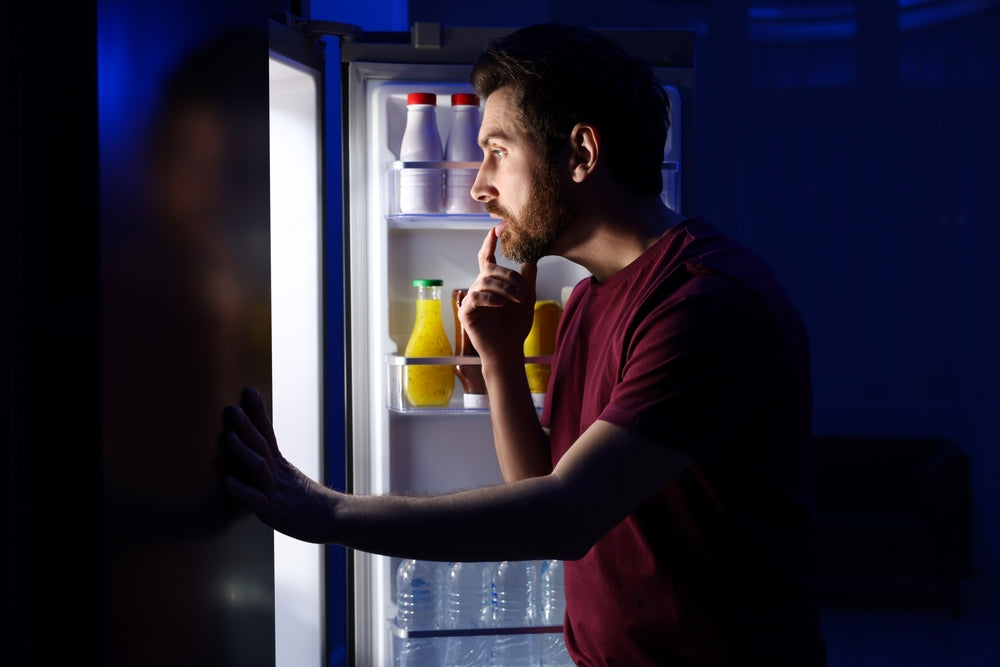If you want to truly elevate your health, boost your energy, and give your body the chance to thrive, breaking the late-night eating cycle is non-negotiable. Your body operates on natural rhythms—biological systems designed to optimize digestion, metabolism, and recovery. When you eat late at night, you disrupt these systems, throwing off everything from your gut health to your energy levels. The result? You feel tired, bloated, and out of sync with your body’s natural flow.
Let’s break this down. Late-night eating isn’t just a bad habit—it’s actively working against your health. Today, we’ll dive into how eating aligns (or doesn’t align) with your body’s natural circadian rhythms, why late-night snacking causes damage, and how you can adopt habits that work with your biology—not against it.
Your Circadian Rhythm: Your Body’s Natural Clock
Your body runs on a 24-hour cycle called the circadian rhythm. This internal clock is tied to sunlight and darkness, affecting everything from your sleep to your digestion. During the day, your metabolism is firing on all cylinders—your insulin sensitivity is high, your digestive system is primed, and your body is ready to use food as fuel.
But as night falls, your body begins to shift into rest and repair mode. It slows digestion, reduces metabolic activity, and releases hormones like melatonin to prepare for sleep. When you eat late at night, you force your body to multitask: digesting food when it’s supposed to be rejuvenating. This creates a cascade of issues that impact your sleep, metabolism, and overall health.
The Damage of Late-Night Eating
Here’s what happens when you eat late:
-
Disrupted Digestion: Your digestive system isn’t designed to work while your body is resting. Eating late can lead to acid reflux, bloating, and impaired gut health over time.
-
Poor Sleep Quality: Late-night eating messes with your sleep hormones, like melatonin, making it harder to get deep, restorative sleep. Digestion during sleep also keeps your body from fully relaxing, leaving you groggy in the morning.
-
Impaired Metabolism: At night, your body isn’t in fuel-burning mode. Late meals can lead to insulin resistance, weight gain, and increased risk of metabolic issues like type 2 diabetes.
-
Stored Fat, Not Energy: Instead of using food for energy, your body stores it as fat. Late-night calories are far more likely to be turned into fat than burned off.
-
Hormonal Disruption: Late eating interferes with your body's natural hormonal cycles, suppressing important hormones like growth hormone, which is critical for recovery, fat-burning, and cellular repair while you sleep.
Why Breaking the Habit Is a Game-Changer
When you stop eating late at night, everything in your body starts to work better. You’ll sleep more deeply, wake up energized, and feel lighter and more aligned with your natural rhythms. Here’s what you’ll experience:
- Better sleep and feeling refreshed each morning.
- Improved digestion with fewer issues like bloating and heartburn.
- A faster metabolism that works with you, not against you.
- Easier weight management with fewer stored calories.
- Stable blood sugar for steady energy all day.
- Higher energy levels to crush your goals.
How to Stop Eating Late at Night
Breaking the late-night snack cycle isn’t as hard as you think. It starts with a few simple adjustments:
- Set an Eating Window: Try time-restricted eating, like finishing your last meal 3-4 hours before bed. A schedule like 8 a.m. to 6 p.m. works well for most people.
- Eat Balanced Meals: Make sure your meals throughout the day include protein, healthy fats, and fiber to keep you full and satisfied.
- Replace the Habit: Late-night snacking is often driven by habit, not hunger. Swap it with a healthier routine, like drinking herbal tea, meditating, or journaling.
- Find Your Triggers: Are you eating late because of stress, boredom, or fatigue? Identify those triggers and address them with healthy alternatives like deep breathing, light stretching, or calming activities.
- Optimize Your Sleep Environment: Keep your bedroom dark, cool, and free of screens. The better your sleep environment, the less likely you’ll be to snack late.
The Bottom Line
Your body is a finely tuned machine designed for balance, energy, and recovery. But it’s up to you to support it. Late-night eating might seem harmless, but it’s holding you back from better metabolism, deeper sleep, and optimal health.
Remember, small, consistent changes lead to big results. Start by aligning your eating habits with your body’s natural rhythms, and watch your energy, digestion, and vitality improve. Your future self will thank you. You’ve got this!





